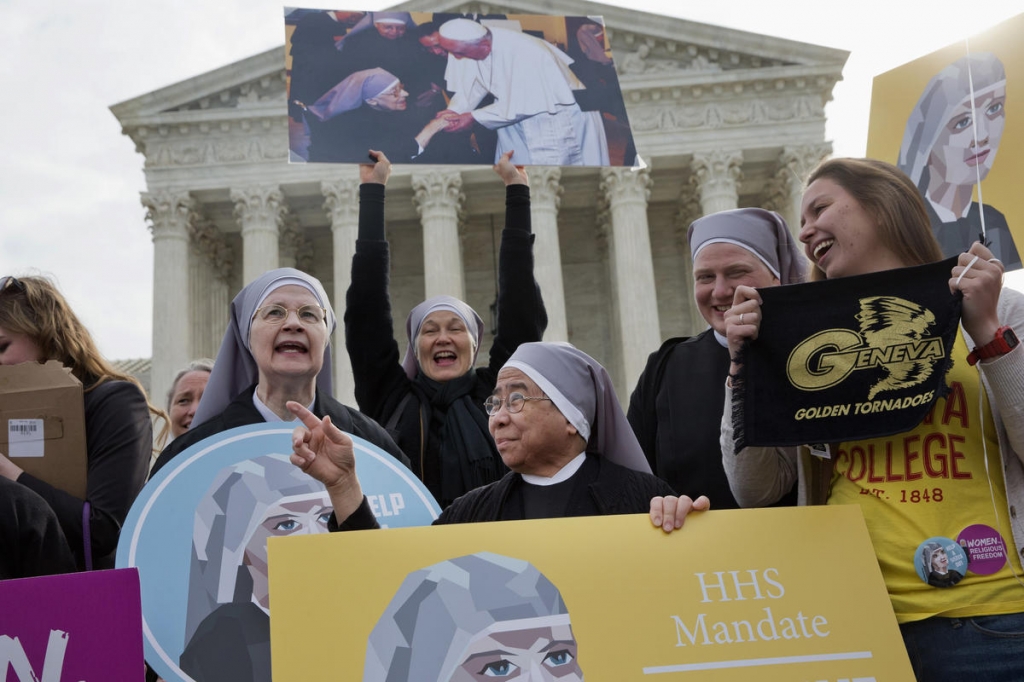-
Tips for becoming a good boxer - November 6, 2020
-
7 expert tips for making your hens night a memorable one - November 6, 2020
-
5 reasons to host your Christmas party on a cruise boat - November 6, 2020
-
What to do when you’re charged with a crime - November 6, 2020
-
Should you get one or multiple dogs? Here’s all you need to know - November 3, 2020
-
A Guide: How to Build Your Very Own Magic Mirror - February 14, 2019
-
Our Top Inspirational Baseball Stars - November 24, 2018
-
Five Tech Tools That Will Help You Turn Your Blog into a Business - November 24, 2018
-
How to Indulge on Vacation without Expanding Your Waist - November 9, 2018
-
5 Strategies for Businesses to Appeal to Today’s Increasingly Mobile-Crazed Customers - November 9, 2018
Justices send Affordable Care Act contraception case back to lower courts
Lower courts’ have overwhelmingly rejected the challengers’ argument that the workaround violated 1993’s Religious Freedom Restoration Act (RFRA), though one appeals court ruled in their favor.
Advertisement
The Obama administration wanted insurance companies and plan administrators to handle coverage of religious groups that don’t want to provide birth control for employees or students.
Today’s court ruling is the latest twist in an unusual case, which was argued before the court shortly after the death of Justice Antonin Scalia, which left open the possibility of a 4-4 split.
After ObamaCare was passed in 2010, the White House negotiated what it called a compromise aimed at allowing the medical coverage but also providing an administrative workaround for those opposing it. The central dispute revolves around a requirement these groups self-certify – and sign a form authorizing an outside administrator to provide contraceptives without the employers’ direct involvement.
The Little Sisters and other plaintiffs say that since sending the government their objections is the action that prompts the coverage through their own health plans, they are forced to act as “gatekeepers” and “facilitate” the objectionable coverage.
“It seems pretty clear that this is a compromise born out of an eight-justice court, where the justices avoid saying anything on the merits and try to make the case go away”, said Steve Vladeck, a CNN contributor and a professor of law at American University Washington College of Law. A tie among the eight remaining justices – four each appointed by Democrats and Republicans – would have upheld lower court rulings, which have varied across the country.
“From the very beginning, we have been adamant that the Obama Administration’s war against faith-based organizations squarely put religious liberty at great risk”, said Jay Sekulow, Chief Counsel of the ACLJ who represented some 80,000 Americans in an amicus brief at the Supreme Court on this issue.
“The Court expresses no view on the merits of the cases”, the decision said.
Advertisement
The federal government has adjusted the mandate rule several times.





























